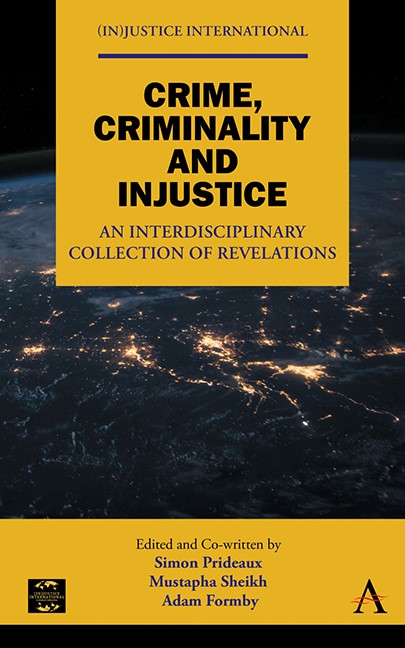Book contents
- Frontmatter
- Dedication
- Contents
- Acknowledgements
- List of Editors and Contributors
- Editor’s Introduction to the Book
- Part One Incarceration, Cultural Destruction and Ecocide: The Alienation of Ethnic Minorities, Nature and Indigenous Peoples
- Part Two The Impoverishment, Exclusion and Maltreatment of the Working Poor
- Part Three Disability, Poverty and Neglect
- Part Four Youth, Gender, Migration and Human Trafficking
- Concluding Remarks
- Index
Chapter Nine - Access to Justice for Disabled People in Nigeria: A Case Study of a Therapeutic Day Care Centre
Published online by Cambridge University Press: 14 November 2023
- Frontmatter
- Dedication
- Contents
- Acknowledgements
- List of Editors and Contributors
- Editor’s Introduction to the Book
- Part One Incarceration, Cultural Destruction and Ecocide: The Alienation of Ethnic Minorities, Nature and Indigenous Peoples
- Part Two The Impoverishment, Exclusion and Maltreatment of the Working Poor
- Part Three Disability, Poverty and Neglect
- Part Four Youth, Gender, Migration and Human Trafficking
- Concluding Remarks
- Index
Summary
Introduction
It is a known fact that the court system in Nigeria is currently congested and the time frame it takes to get justice from the courts is fast becoming more of a mirage than reality to the common man (Umegbolu 2021). The collaboration of the Lagos State judiciary and Negotiation Conflict and Management Group (NCMG) conceived the Lagos Multi-Door Courthouse (LMDC) in a bid to proffer a solution. In simple terms, LMDC connotes the enhancement of dispute resolution practices with the integration of Alternative Dispute Resolution (ADR) in the court system. Certainly, this approach has enhanced access to justice for a large percentage of the populace. However, it is rather unfortunate that there are no proper considerations for the disabled communities, including the disabled in Nigeria, to benefit from this laudable innovation. In this respect, the following viewpoints were informed from data collection in Lagos and Enugu. Indeed, the question that comes to mind is if the non-disabled citizens rights are not fully met, how then does the justice system seek to protect and preserve the rights of the non-disabled persons? To begin with, this chapter seeks to engage with the idea of defining Access to justice, which is distinct from availability of access or accessibility (Cambridge Dictionary 1995). In so doing, the chapter will point out the main traits and characteristics that contribute to hindering access to justice for disabled citizens.
Access to Justice and Accessibility
Access to justice simply means the common man having the unequivocal right to access the court without obstruction (Onyema 2012). In other words, the fundamental nature of true access to justice is undoubtedly hinged on the availability of its access to all. Hence, the denial of access to justice by any means whatsoever, whether by failure of the system to make alternative provisions in relation to high cost of litigation to support the indigent in the society or by any form of discrimination or exclusion of certain categories of persons from getting access to justice, then the system is a monumental failure.
The above viewpoint is backed by Section 36 (1) of the 1999 Constitution of the Federal Republic of Nigeria which stipulated
…that the common man is entitled to be treated justly and get a fitting remedy from the court, which is within the ambit of the law and within his constitutional right as a citizen of Nigeria.
- Type
- Chapter
- Information
- Crime, Criminality and InjusticeAn Interdisciplinary Collection of Revelations, pp. 151 - 166Publisher: Anthem PressPrint publication year: 2023

